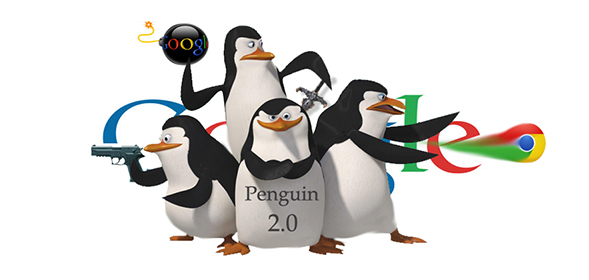Google Penguin 2.0 Update

Google Penguin 2.0 Update
Webmasters have been waiting for the Google Penguin 2.0 since the announced of its roll out by Matt Cutts on Twitter on May 2013. The next most important Google algorithm update since the penguin update on April 2012 that have shaken the online world. Google search results landscape could drastically change.
Google Penguin 2.0 rolled out on the 22 May 2013, we are still waiting for the feedbacks from the webmasters but we can already say one thing that it will be a big change on the SERP’s. Yes, there have been multiple iterations of the update that have been done, but those have simply been data refreshes of the original update. Google has deployed the big new version of it, and when we say big, we mean bigger than the original.
The Google Penguin update impacts 2.3% of English queries and also impacts other languages but the percentage depends on the level of spam in those languages.
This update will be more intuitive than the first version of Google Penguin and is tailor-made to target black hat practices. Individuals investing into spamming and black hat SEOs should be worried about their websites. If you’ve been focusing on quality content, responsive web design and building a solid reputation online you have nothing to fear.
There are lots of people complaining about ranking declines and some about boosts. It is too early to expect real change but we will wait for new post and poll about the impact of Google Penguin on the SERP's.
Things you should expect from Google in 2013
Advertorials
Many advertorials (a.k.a., native advertising) violate Google's quality guidelines. More importantly, they should not flow Page Rank.
Google is planning to be a lot stronger on their enforcement of these types of paid links and advertising, disguised as “advertorials”. Google simply don't want the abused of Advertorials for Page Rank and linking reasons.
“Payday Loans” in .co.uk
Cutts mentioned that this is a problematic search, and there are others like it, so they are tackling it a couple of different ways. For those that play in that space you're out of luck since Cutts isn't revealing exactly how they are dealing with it, just that it will be happening. He said that they are targeting specific areas (another example he included was porn queries) that have traditionally been a lot spammer.
Devaluing Upstream Linking
Again, Cutts isn't going into details about this, but they are working on making link buying less effective and have a couple ideas for detailed link analysis to tackle this issue.
Hacked Websites
They want to roll out a next generation of hacked detection, as well as being able to notify webmasters better. They would like to be able to point webmasters to more specific information, such as whether they are dealing with malware or a hacked site, and to hopefully clean it up.
Authority
If Google's algorithms believe you or your site is an authority in a particular area, they want to make sure those sites rank a little bit higher than other sites.
Panda
They are looking for some additional signals for sites that are in the "gray area" or "border zone", and looking for other signals that suggest the site truly is high quality, so it will help those sites who have been previously impacted by Panda.
Changes to Cluster of Results from the Same Site
If you're doing deep searches in Google, and going back 5, 6 or more results pages deep, you can see the same site popping up with a cluster of results on those deep pages.
Google is looking into a change where once you have seen a cluster of results from the same site, you will be less likely to see more and more from that same site as you go deeper. Cutts mentioned this as being something that came specifically from user feedback
More Information for Webmasters
Cutts said they want to be able to keep giving webmasters more specific and detailed information via webmaster tools. He mentions specifically example URLs to help webmasters diagnose problems on their site.
He believes that the changes will really make a difference with the quality of the search results, as well as impact the amount of spam that is showing up.
